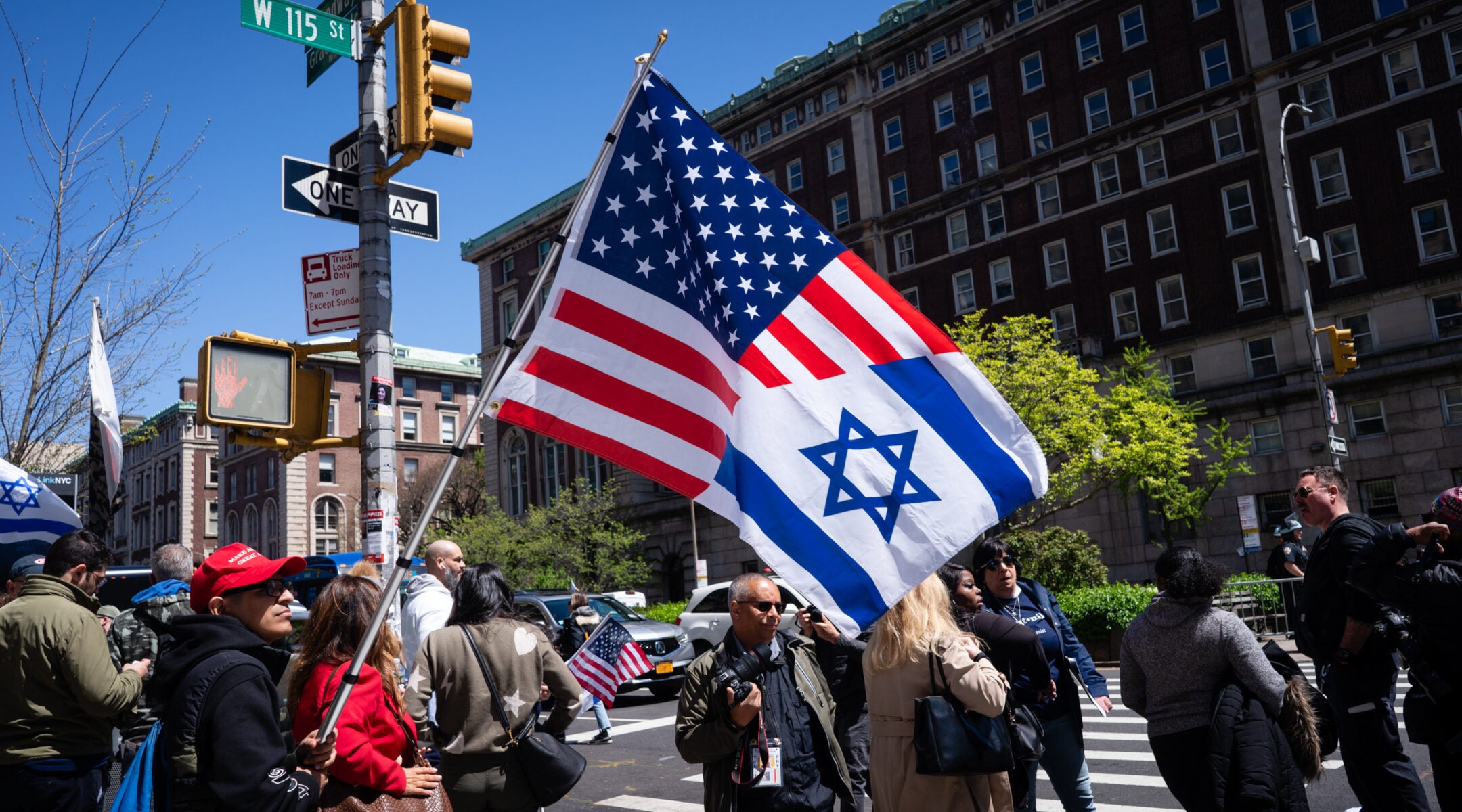The first draft of the survey of sentiment among Jewish professionals contained an unexpected stumper: Where do you find hope?
The question on the survey drafted by M², The Institute for Experiential Jewish Education was conceived as a way to surface solutions at a tough time for those on the frontlines of Jewish communities. But as the draft circulated within the organization, founder and CEO Shuki Taylor said the feedback was almost unanimous: “Why are you assuming that people have hope right now?”
The response spurred a revision. “We kind of changed the assumptions behind the study,” Taylor said. The new first question was different: “Are you feeling hopeful?”
And the results were gutting: Less than a quarter of Jewish community workers report often feeling hopeful about the future, according to the poll. In contrast, recent research has shown that 82% of the U.S. population reports feeling hopeful about the future.
The respondents — nearly 950 employees of Jewish organizations in the United States — said their hopelessness was not primarily driven by antisemitism or Israel’s multifront war. Instead, the most frequent answer was “internal communal division,” comprising nearly twice as many answers as other concerns.
After that, respondents listed “leadership failures,” followed by “external hostility/antisemitism” and “navigating Israel discourse.” They also described feeling “caught between competing factions,” “unable to navigate constituency expectations,” and “watching our community tear itself apart,” according to the report.
The survey was fielded between July and August, following Israel’s 12-day conflict with Iran, but before the focus of media coverage on Israel’s offensive in Gaza shifted to reports of widespread starvation in the enclave.
It was taken as tensions in Jewish spaces broke into public view. In one salient example in early August, two British rabbis were jeered off stage at a rally in support of the Israeli hostages in Gaza by members of the crowd who objected to them calling for an end to the war.
The dustup surfaced internal tensions that had been playing out behind the scenes within Jewish organizations, particularly but not only about Israel. In December, 14 staffers of New York City’s Museum of Jewish Heritage wrote a letter obtained by Jewish Currents objecting to the display of the American and Israeli flags in the museum’s lobby, writing that they signify an “endorsement of Israeli politics.” But that was just one example: In Hebrew schools and synagogues, social media discussion groups and on WhatsApp, tensions among employees of Jewish organizations have been rising along with angst about the war in Gaza.
According to Clare Goldwater, the chief strategy officer of M², it became very clear from the responses to the survey that discussions about Israel had become a “very polarizing factor” in Jewish community spaces.
“People don’t feel safe saying what they think in their workplaces,” said Goldwater. “They feel that there’s a culture in which debate and discussion about complex issues is very hard to have, and the culture does not cultivate places for processing discussion and constructive debate.”
Taylor said that he had filled out the survey himself and identified with the results.
“I think that especially when it comes to my own sentiments and internal communal divisions, there’s a time in which being an ardent Zionist and a strong supporter of Israel, where it rubs up against certain elements of progressive values, and that’s really, really challenging,” he said.
Indeed, while fears over rising antisemitism and a recent spate of antisemitic attacks, including in Washington, D.C. and Boulder, Colorado, contributed to the sentiment, the study found that the greatest obstacle of sustaining hope among respondents was internal division within Jewish communities, including political disagreements and sensitivities around Israel, according to the survey.
Two-thirds of the survey’s respondents said the situation in Israel affects their personal well-being, and 59% worry extensively about antisemitism, but just a quarter said that antisemitism significantly affects their work performance.
The study listed four recommendations for Jewish organizations to better support their workers: “Develop principled leadership,” provide dialogue and conversation training to address internal communal division; make the impact of their organizations more visible; and “strengthen Jewish identity and belonging.”
“In terms of the culture that can be created, the recommendation is to clearly create a culture in which people can process how they’re feeling, feel safe to say what they need to say and have constructive dialogue,” said Goldwater.
But she said the survey also suggested a paradox — while some workers sought strong statements from their leaders, taking a clear stance could also sow further divisions.
“On one hand, it’s very clear that people want moral clarity from their leadership. They want people to say something, to mean it, to stand for something,” Goldwater said. “But we also see here that sometimes people find it challenging when their leaders say things they don’t agree with.”
JTA has documented Jewish history in real-time for over a century. Keep our journalism strong by joining us in supporting independent, award-winning reporting.





